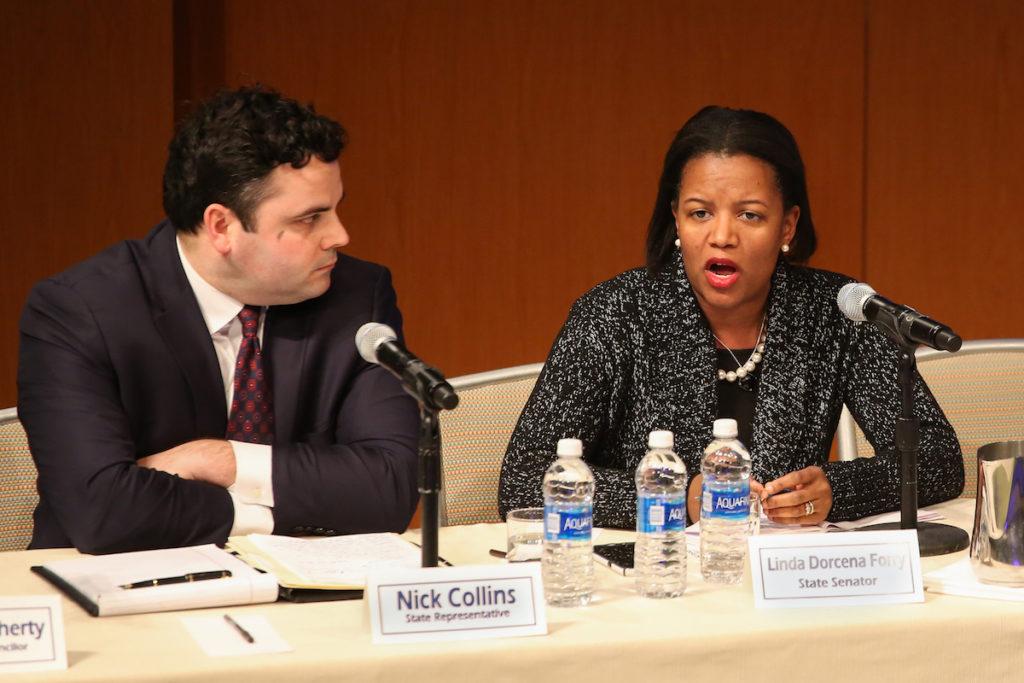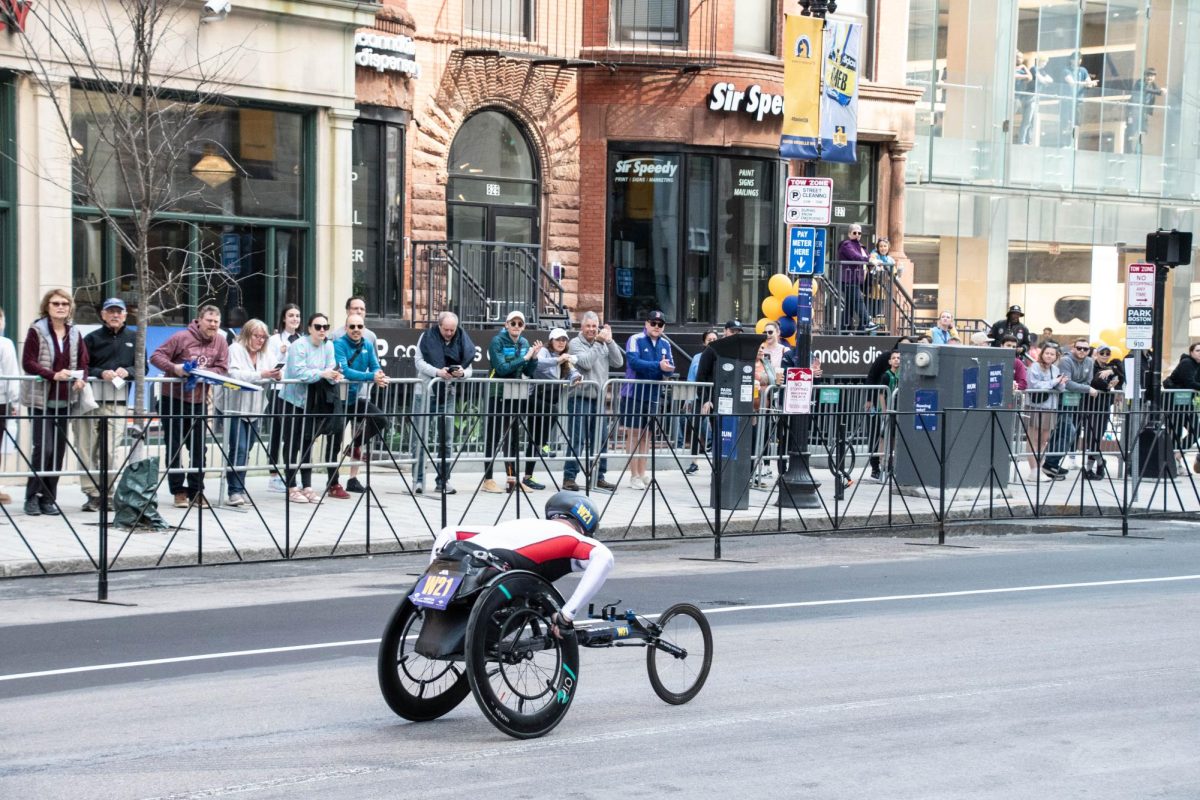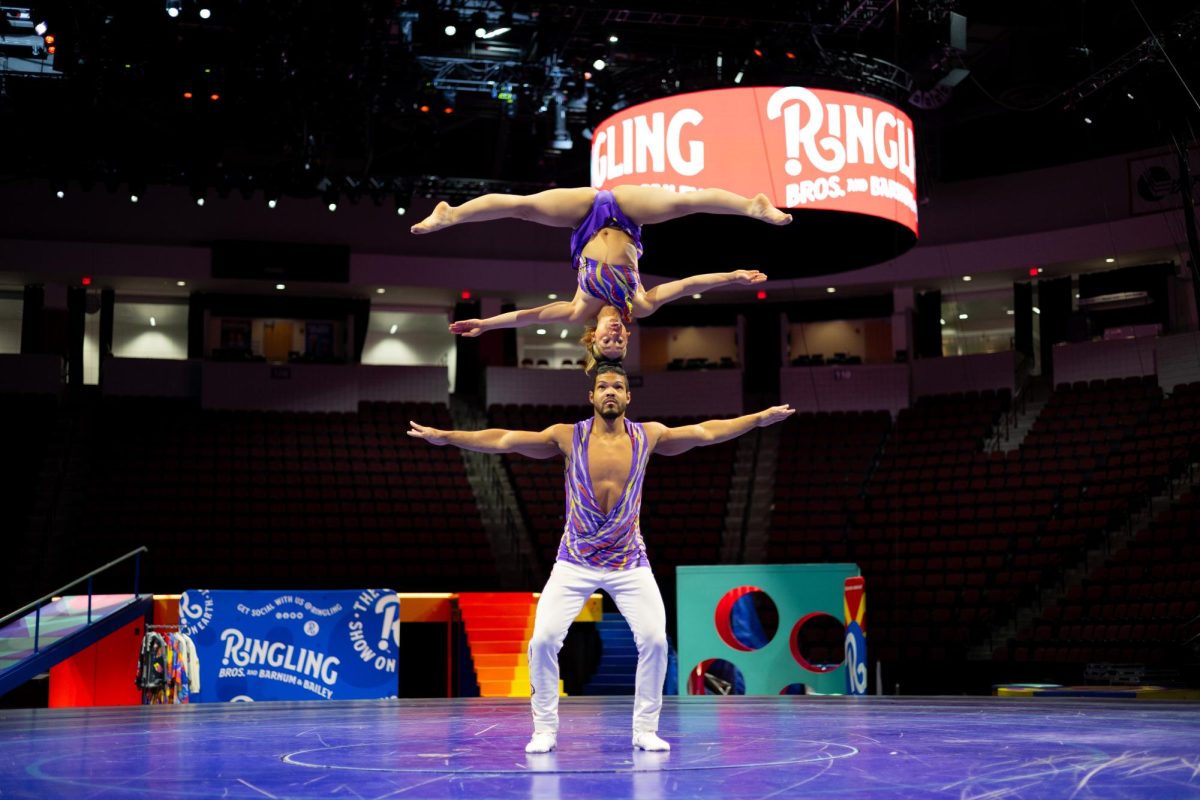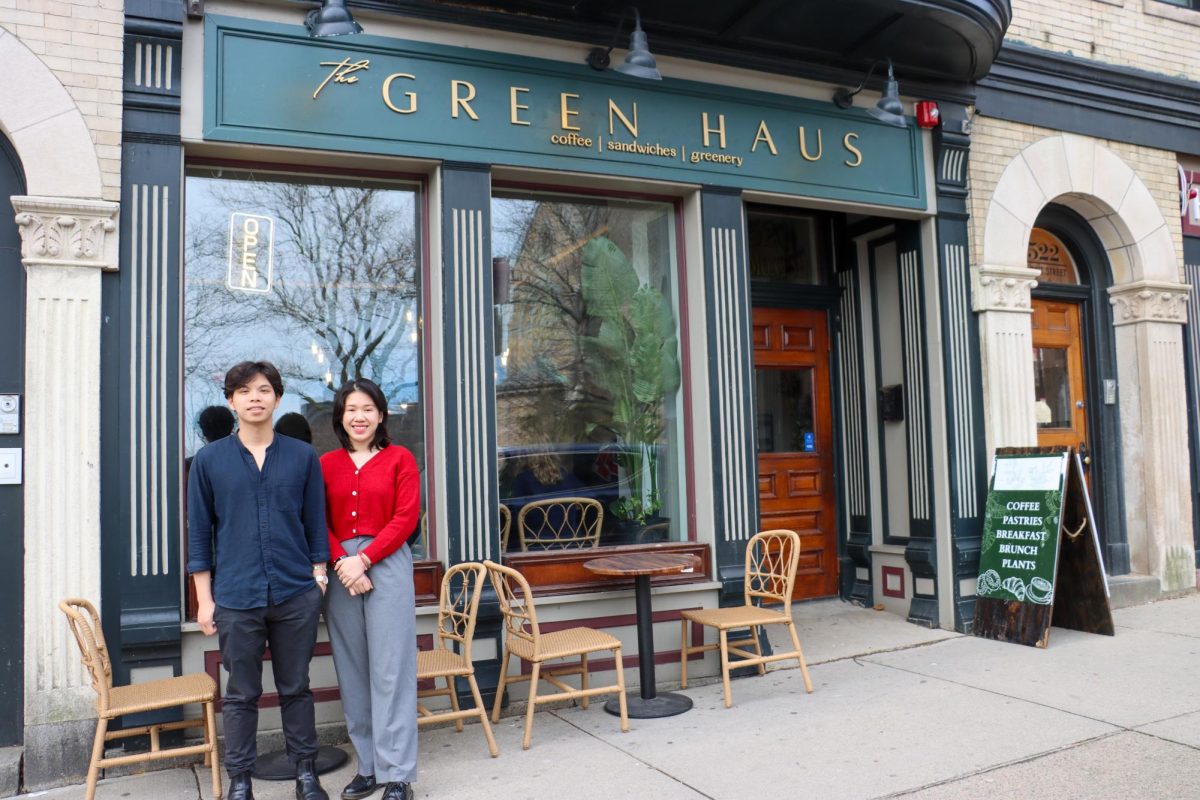By Matt Allen and Alex Eng, news staff
Boston residents and local business owners spoke in opposition of a proposed helipad on Monday at a public hearing hosted by the Massachusetts Department of Transportation (MassDOT) at the Seaport World Trade Center.
A task force of public officials from MassDOT and the City of Boston said the most likely location for the proposed helipad would be Dry Dock 4, located in the east wing of the Raymond L. Flynn Marine Park in South Boston’s harborside area. The construction of the helipad was a key part of the incentive package offered to General Electric (GE) in their move to Boston, according to The Boston Globe.
At the start of the meeting, City Councilor at-Large Michael Flaherty said residents had come to him recently with questions about the logistics of the proposed helipad.
“The questions I’m hearing from people are pretty basic: ‘Will they fly over my house?’; ‘Why don’t they just go to Logan?’” Flaherty said. “‘And, what will happen to the music pavilion?’”
City Councillor Tito Jackson (D-7), who has a history of opposing GE’s move to Boston and the business incentives deal brokered by the state, spoke against the helipad.
“If they want a helipad, they can build their own helipad,” Jackson said. “But not with our money and not on our watch.”
South Boston resident Laura McDonagh questioned how MassDOT would regulate helicopters flying over her neighborhood. She said the task force panel was lying to the public by claiming helicopters would only follow certain routes.
“Those trails for those helicopters are a lie,” McDonagh said. “Any South Boston resident will tell you that. This is a no go for South Boston.”
The MassDOT Heliport Task Force consisted of city, state and MassDOT officials such as Flaherty, State Rep. Nick Collins (D-Mass.), State Sen. Linda Dorcena-Forry (D-Mass.) and MassDOT Secretary and Chief Executive Officer Stephanie Pollock.
The task force stressed that the proposed location and estimated budget of $2-12 million were not set in stone and depended on community feedback. The task force will continue to collect public input through the end of February and will conduct another public meeting at the Massachusetts State House from 2 to 4 p.m. on Feb. 6.
Bob Mentzer, a sound engineering consultant with HMMH Environmental Management Systems, said the proposed helipad would bring about economic growth without presenting noise or air traffic issues to the public.
“I tried to help the team develop a perspective on how [the helipad] would impact the surrounding area,” Mentzer said. “Our research found that the loudest sounds from the helicopter operations won’t be any louder than the average sound levels already measured in those areas.”
Residents living near Massachusetts Bay Transportation Authority (MBTA) bus and train stations responded by saying the noises in their neighborhoods were already loud, and tourism helicopters flying over their homes gave them a sense of what the proposed helipad would bring.
The helipad would be Boston’s first public helipad since 1999, following the defeat of a proposed pad in 2008 due to community pushback. The nearest public helipads are is at Logan International Airport. There are also two pads in Norwood and Bedford. Several medical emergency pads lie atop hospitals such as Tufts Medical Center and Massachusetts General Hospital.
MassDOT officials said the helipad would bring economic growth to businesses, but local business owners like Blue Hills Bank Pavilion general manager Jim Jensen were quick to refute that claim, saying the helipad would harm businesses’ venue quality.
“The reputation that we have as a suitable place with world class entertainment is the core asset of our survival and growth,” Jensen said. “I realized that if you picked anyone from last year’s schedule, like Paul Simon or The Lumineers, they’d all call their agents and say, ‘Don’t book us back into this place, a helicopter just took off right next to where we are performing.’”
Other local business representatives like Matthew Burwell, vice president of strategic initiatives at Legal Seafood, shared Jensen’s concerns. Burwell said the helipad would disrupt the summer ambiance of their rooftop dining area.
MassDOT officials said they needed to determine how to limit helicopter traffic, which is estimated to be between 20 to 40 takeoffs and landings per day, on concert days. They also said they wanted to discuss limited access for tourism helicopters.
Still, some residents said the helicopters should continue to use Logan International Airport’s helipads for landing, given the airport’s proximity to South Boston.
Many in attendance, such as Cambridge resident James Cooke of the Make GE Pay Coalition, were also skeptical of the reasons for building this helipad and its necessity when compared to more prominent issues. Cooke opposed GE’s role in requesting a public helipad as part of its business incentives package last year.
“Who is this helipad serving, and why are we putting $2-12 million of public funds into it while we starve the MBTA for funds, can’t properly fund our schools and have hundreds of people […] and heroin addicts dying in the streets?” he asked. “We can’t take care of our own people, but we’re giving hundreds of millions of dollars to GE.”
Photo by Dylan Shen














